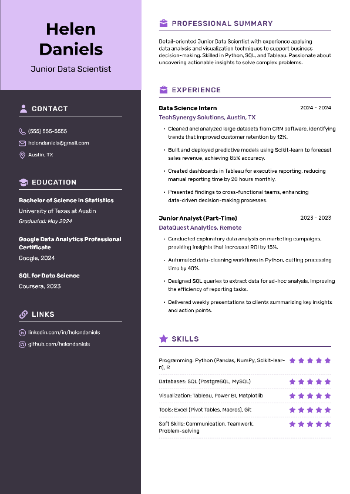I used to be just lately contacted about a chance. On many ranges, this chance “checked all of the containers”, however there was one caveat: I’d have to maneuver to San Francisco. For a lot of (together with a earlier model of myself) that will be a dream. However for present me, it will imply throwing away the very life that I had spent the final 3+ years deliberately constructing.
Regardless of having spent over 10 months on the lookout for the “proper” distant job again in 2015 and now dwelling the life I had lengthy envisioned, I’d be mendacity if I mentioned that I didn’t critically take into account the change. The lure of cash, connections, and “the valley” was cogent.
But, after I thought of what I actually needed and prioritized in my life, it grew to become instantly clear that I’d be buying and selling down. Extra particularly, I’d be buying and selling the liberty to optimize my life for one which was predominantly decided for me.
Finally, I turned down the position, which in fact prompted the corporate to proceed to search for the appropriate individual to carry onsite. That response﹣whereas utterly logical﹣obtained me pondering…“Will they be capable of fill the position?”. The apparent and proper reply is sure. However what sparked the query was the conclusion that they had been wanting “inside a field” for somebody who’s already pondering outdoors of 1.
Wanting Exterior of the Field
Within the digital age, many firms cite their biggest problem as the upcoming “struggle for expertise”, as a result of imbalance of provide and demand, ensuing from the widening talent hole.
With the pace of change in our workforce rising, firms see “successful the struggle” as the one method to keep modern and forward of the competitors. Their options end in ping pong tables, wage wars, and ridiculous inflation inside tech hubs, in an effort to draw high expertise.
As firms place greater significance on attracting, recruiting, and retaining high expertise, I wonder if some firms are lacking a giant puzzle piece. I ponder whether or not the businesses that couple their extremely developed vetting processes with a necessity for onsite expertise, should not solely limiting the sheer variety of candidates, however maybe one of the best? I can’t assist however marvel in the event that they’ve eradicated a big chunk of people who’re already dwelling within the very future that these firms are hoping to create.
Do you see the disconnect?
Firm: “We’d like somebody who has confirmed their skill to execute. We’re on the lookout for individuals who see issues otherwise; individuals who suppose outdoors of the field and create modern options.”
Recruiter: “Nice, how about somebody who lives in Poland? She moved there to be together with her husband, in order that they’ll increase their daughter collectively. Flexibility has allowed her to bootstrap an organization to an 8-figure valuation, however she simply bought it and is on the lookout for her subsequent problem”.
Firm: “Sorry, we will’t do distant.”
 Discovering gravity “outdoors the field”
Discovering gravity “outdoors the field”
Though I can definitely acknowledge my very own bias, it confounds me that firms are keen to auto-eliminate a gaggle that I’d take into account numerous and forward-thinking; a gaggle of people that have already creatively redefined their world.
Put merely, these people actually checked out their lives and thought, “There should be a greater means”, after which took the initiative to impression change. As extra firms seek for “artistic methods to recruit workers”, I can’t assist however marvel if they might develop a robust, but in a single day, aggressive benefit by merely opening their doorways as much as the distant workforce.
The Distant Affinity Ratio (RAR)
Step one in evaluating whether or not you need to be extra open or much less open to working or hiring remotely is figuring out the potential bias you might have in direction of this new means of working.
I’ve personally been working remotely for the previous 3 years. That might not be a big period of time for most individuals, nevertheless it’s truly represented 75% of my expertise within the full-time workforce. In some ways, it’s all that I can bear in mind.
As I began to additional take into account the idea of quantifying somebody’s affinity or openness to distant work (and maybe new methods of pondering or dwelling), I conceptualized the “distant affinity ratio” or RAR.
Put merely, it’s the ratio of: years labored remotely and whole work expertise.
RAR = (# of years labored remotely) / (# years in workforce)
The metric is just not meant to be one borne out of competitors, however as a substitute to mirror on how one’s prior expertise might impression one’s openness to new working norms.
With this way of life so ingrained in the way in which I function, I have to remember the fact that a lot of the world nonetheless doesn’t function this manner. So whereas it surprises me when people or firms are utterly closed off to the idea, after I consider the timescale that others draw their context from, it begins to make somewhat extra sense.
As a easy instance, image the lifetime of a 55 year-old, who’s been within the workforce for 35 of these years and the comparability of their “world” in comparison with the image of my very own that I drew above.
Even when this particular person works remotely for 3 years, it solely represents a single digit share of their profession and due to this fact a majority of their notion will nonetheless fall outdoors of this new method.
When put next side-by-side, it’s not shocking that it’s simpler for me to visualise a unique means of working and dwelling. Not as a result of I’m higher, smarter, or extra artistic, however as a result of I’ve lived this new method for longer and I’ve fewer limitations in seeing previous a long time of prior expertise. My viewpoint on how issues ought to work isn’t solidified but.
RAR is a metric which is only meant for reflection; to attempt to perceive how our experiences accumulate to kind our notion of what’s or isn’t potential/higher/optimum.
So to those that are nonetheless remote-averse of their quest in direction of discovering and retaining expertise, take into account whether or not the issues are based in expertise or historic notion. Extra importantly, is your notion a mirrored image of the place the world is right now or your RAR?
I write a really occasional e-newsletter about productiveness, distant work, steady development, and tech. Should you favored this text, be part of 8000+ subscribers right here. Forecast: 0% probability of spam.
With the idea of RAR in place, I began to consider among the fundamentals of distant work and what somebody with a excessive RAR might deeply perceive, but could also be invisible to these with restricted publicity. I honed in on three concepts that appear to be probably the most nascent:
- By conference, distant staff are likely to suppose outdoors of the field
- Versatile work incentivizes folks to optimize and enhance
- Survivorship bias impacts the way in which folks view distant work
With a deeper understanding of those three factors, I actually imagine that hiring managers might be extra open to the idea of hiring remotely due to the optimistic tradeoffs that exist in enabling a bigger, extra modern expertise pool.
Innovation Nation
TechCrunch just lately revealed an article claiming that distant staff and nomads are the following tech hub for innovation. Just a few weeks later, Stripe declared that their subsequent engineering hub is… distant! It is no secret that firms are capitalizing on the intersection between innovation and the distributed workforce.
By merely giving somebody the liberty to exchange a commute with different issues, they not solely have extra time to innovate, however are left much less exhausted and extra impressed. These people haven’t solely began pondering outdoors the field, however dwelling outdoors of 1 (a cubicle) as properly.
Distant work allows folks to begin pondering creatively about how they get their work achieved, but additionally invitations folks to optimize previous that. Many take that chance to think about how they’ll enhance their psychological and bodily well being, funds, enterprise alternatives, and extra. Think about the overlap between digital nomadism and issues like monetary independence, expertise, entrepreneurship, minimalism, and investing right here. The artistic power of the distant revolution has pushed folks to innovate throughout every of those domains, leading to completely new ideas, like FIRE.
 Visualization of associated subreddits to r/digitalnomad
Visualization of associated subreddits to r/digitalnomad
Many individuals are conversant in Peter Thiel’s well-known query from Zero to One:
Thiel, in impact, is trying to isolate how people suppose. Whereas Thiel’s query might unearth clever or artistic minds, I’d argue that a fair higher means of isolating those that are in a position to predict the long run can be to seek out expertise who’re presently dwelling it.
The Incorrect Incentives
Suppose that you’ve got a sequence of vegetation that you simply not have the capability to care for your self. You will have two choices:
- You may offload your vegetation to people who will come into a particular location to water them. This location has the precise quantity of water and daylight to maintain the vegetation alive. The vegetation probably gained’t die, however they definitely gained’t flourish. The excellent news is you can watch those that you’ve employed are available and water the vegetation.
- You may choose to produce other people care for your vegetation. These people have extra sources and may optimize them as they see match. When you can’t watch these people water the vegetation, you possibly can pay them primarily based on their profitable skill to get the job achieved properly. The success of this working relationship is constructed on belief and impression.

Now think about these vegetation as your organization. These eventualities should not so not like the comparability between hiring people “in-house” and giving workers the liberty to work remotely. Whereas the second situation might end in some useless vegetation (or terminated hires), what’s extra more likely to occur is that the people will respect that they’ve the house to function and produce outcomes. In the meantime, the primary situation nonetheless has ample potential to end in useless vegetation and may solely ever obtain the utmost potential that you simply’ve predetermined.
Right here’s the factor that lots of people don’t acknowledge about workplaces: you actually don’t have any incentive to enhance. When your day is finally tethered to the variety of hours you must be there, why determine to be extra environment friendly?
- Why trouble producing greater high quality work?
- Why trouble bettering your workflow to half the time it takes to do a activity?
- Why trouble creating 2x complicated options that ship 10x impression?
Why trouble being higher, faster, or extra optimum? Why trouble.
This idea, of not giving folks house to innovate and create their very own path to impression, compounds additional.
Why? I essentially imagine that after you get somebody to begin contemplating how they’ll work extra optimally, this permeates into different points of their life. They’ve now skilled their brains to take away noise and optimize towards impression. This may inevitably impression the way in which an worker engages with issues they face throughout contexts.
In brief, by enabling distant work, you’re inadvertently coaching your folks to enhance the way in which they suppose and the way they’ll obtain extra. Most significantly, you’re giving them the house they should get there.
I write a really occasional e-newsletter about productiveness, distant work, steady development, and tech. Should you favored this text, be part of 8000+ subscribers right here. Forecast: 0% probability of spam.
Survivorship Bias: Looking within the Incorrect Locations
Nonetheless not satisfied? Let’s discuss survivorship bias.
Once I go to coworking areas filled with nomads, I’m all the time impressed by high quality of those that I meet. Whereas there may be all the time a distribution, a majority of people need to enhance their lives not directly, whether or not or not it’s beginning a brand new enterprise, studying a brand new talent, investing in a greater eating regimen, or seeking to develop some type of a greater behavior.
Once I hear of serious swaths of business being apprehensive of distant staff, I can’t assist however marvel if some survivorship bias is at play.
For these new to the time period, survivorship bias is: the logical error of concentrating on the folks or issues that made it previous some choice course of and overlooking people who didn’t, sometimes due to their lack of visibility.
On this context, take into account that people with a nasty expertise working with distant staff will probably be the loudest. Much like the insurance coverage business, individuals are fast to report and amplify a nasty expertise, whereas being completely content material to tread silently when a number of optimistic experiences occur.
As an alternative of treating damaging experiences as an outlier, these amplified experiences develop into the narrative for others. In insurance coverage, if just a few claims are processed slowly, their Belief Advisor ranking is 2 stars. With distant work, if just a few people are unaccountable, your complete distributed workforce is deemed undependable.
 The “voice” of a damaging expertise is usually most amplified, impacting the notion of those that have but to kind an opinion primarily based on their very own expertise.
The “voice” of a damaging expertise is usually most amplified, impacting the notion of those that have but to kind an opinion primarily based on their very own expertise.
As soon as this narrative is about, it’s laborious to interrupt. Even when optimistic tales are shared, the “N” is just too low to offset the notion.
When you consider what examples could also be forming your notion of distant work, what number of of these are primarily based out of your individual experiences? What’s the pattern dimension? How does this examine to the great or dangerous hires onsite?
There’s a false notion that each one distant staff wish to “go distant” to steer a better life. The fact is that they usually wish to stay a higher life, which is distinctly totally different. For instance, many people are on the lookout for the chance to spend extra time with their youngsters, to optimize their schedule, or to dedicate unproductive time like a commute to one thing extra productive. In truth, in line with the IWG World Workspace Survey, over 50% of individuals would prioritize versatile working over working for a prestigious firm or extra vacation allowance.
Founders usually ask how they are going to discover gifted workers and moreover, retain these gifted workers. This is a touch: give them the liberty that they so clearly want. The overwhelming majority of distributed workers should not seeking to work on the seashore and even stay wherever close to one-they’re wanting merely for autonomy over their lives.
What am I making an attempt to speak right here?
- Don’t let survivorship bias affect your notion of distant staff. Construct up your individual impression by expertise.
- It’s essential to reframe the intentions of these seeking to work remotely. Usually, folks don’t wish to work remotely to do much less, however as a substitute need to do extra. Should you vet for these indicators of ambition, you’ll probably end up attracting gifted workers.
Hiring Exterior the Field
We’re taught from a younger age to “suppose outdoors the field”, but I feel many have been skilled all through the a long time to optimize inside one. As hiring managers, whenever you’re on the lookout for these really disciplined thinkers, I query why so many firms robotically remove so many who have already confirmed by motion their skill to suppose outdoors of the field.
You could hear the “horror tales” of an organization hiring a distant candidate that went exceptionally badly, but I’m certain the identical hiring managers may cite an equally misguided in-office rent. Since distant work is the newer, extra modern mannequin, we use just a few examples to push again on the extra modern mannequin.
As an alternative of utilizing dangerous hires to discredit your complete mannequin, I’d encourage hiring managers to consider the kind of particular person they wish to rent from the bottom up:
- Is it somebody that takes initiative to design their very own life?
- Is it somebody that works to seek out artistic options to allow this life?
- Is it somebody who can work dynamically and flexibly?
If that’s the kind of individual you need in your organization, don’t remove a complete cohort of them and open your thoughts to the way forward for work. Within the “struggle for expertise”, there isn’t a higher aggressive benefit than having access to hundreds of candidates that your rivals are too fearful to discover.
PS: Come say hi there on Twitter.
Should you favored this text, I’ve a sense you may get pleasure from this podcast episode about traditions, together with the 40-hour workweek:








![The whole information to utilizing a two-column resume template [with examples]](https://www.tocqi.com/wp-content/uploads/2025/04/e5e0b957aa6ea20b7c95672a87bb767e.jpg)

